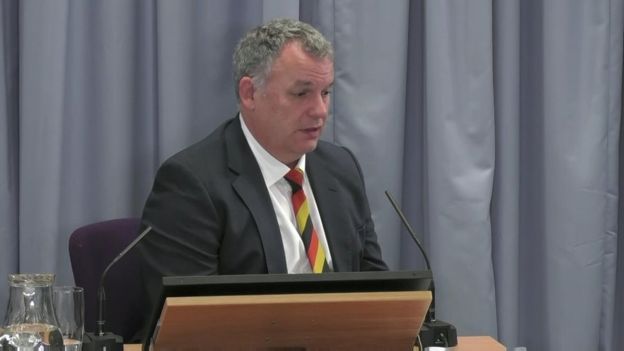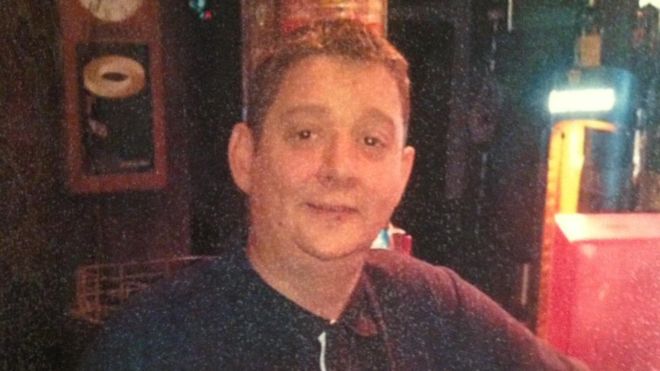
Derry man Paul Kilpatrick speaking at the contaminated blood inquiry in Belfast on Tuesday, May 21
Paul Kirkpatrick, who has haemophilia, was speaking for the first time about his experience at a contaminated bloody inquiry
Hearings into what has been called “the worst treatment scandal in the history of the NHS” opened in Belfast on Tuesday.
An estimated 4,000 people across the UK were infected and thousands are thought to have died.
With allegations of a cover-up, no-one in government or the NHS has been held to account.
Mr Kirkpatrick, who is in his fifties, said he had lived a life being told he was a public health risk and had been paranoid that his children would be affected.
As a result of the infection he contracted Hepatitis B and C.
Giving evidence, he said he had felt unclean and only now as a result of the inquiry had he been offered counselling.
Over the past three decades, he said he had batted away various “clouds”, including potential cancer, CJD, AIDS, never knowing what the health service would throw at him next.
He described the “shocking, confused process of passing on life-threatening information to patients” including himself, “where often information is passed on to patients because they ticked a box”
Mr Kirkpatrick said this should never be allowed to happen again.
At the inquiry, Paul Kirkpatrick spoke of how the infection affected his family and his children.
He said: “My blood was always open and my wife would follow me round the house sterilising everything to make sure there was no risk to the kids.”
He added that he would not touch dummies, prepare food or allow the children to get into his bed when he had open wounds.
Mr Kirkpatrick said: “Like any parent you want to protect your kids first and foremost and both of us did that as best we could.
“There was fear they would be contaminated in some fashion.”
The first UK-wide public inquiry into the scandal is being led by Sir Brian Langstaff, who was appointed in February 2018, and is looking at why thousands of people with haemophilia were infected with hepatitis C or HIV in the 1970s and 1980s.
Some people have waited 30 years for a full public inquiry.
Speaking at the start of proceedings on Tuesday, Sir Brian said the inquiry had visited Belfast “as a matter of principle”, adding that it puts people first and that he was in the city to listen.
Each of the UK nations has its own financial support scheme for infected patients.
There have been complaints that victims of the contaminated blood scandal in England and Scotland are receiving more financial help than those in Wales and Northern Ireland.
The problem dates back to the 1970s when imported blood-clotting products derived from blood plasma caused haemophiliacs and others to be infected with HIV and hepatitis.
Warnings raised as early as 1974 were ignored – now patients want to know who within the NHS and the government knew what and when.

Seamus Conway could have been a professional snooker player,says his sister Christina
His family believes his eventual liver cancer diagnosis was a direct result of having hepatitis after he was given infected blood products as a child.
Ms McLaughlin is due to give evidence to the inquiry on Thursday and said she had every faith in its chairman.
She told BBC News NI that although previous attempts at inquiries were not successful, Sir Brian had said he would “get to the truth and leave no stone unturned”.
Ms McLaughlin’s sister, Patricia Kelly, said she hoped lessons would be learned.
“This inquiry will get people some kind of closure but it won’t bring back their family members, their sisters or brothers, their mothers or fathers,” said Mrs Kelly.
“It’s horrendous, but at least people will get a closure.”
.
Tags:




